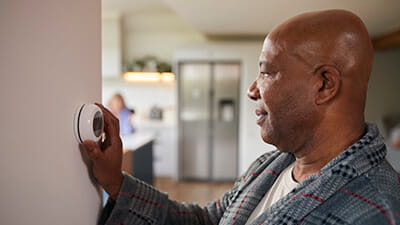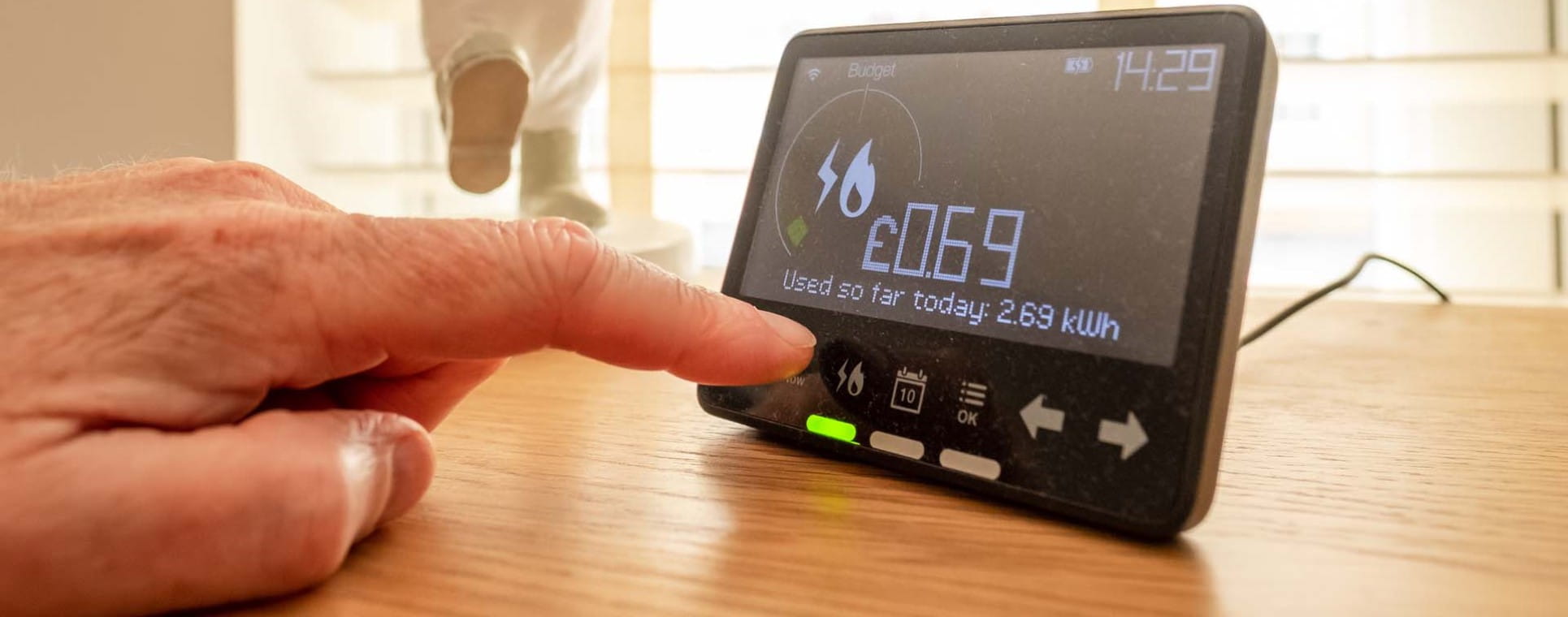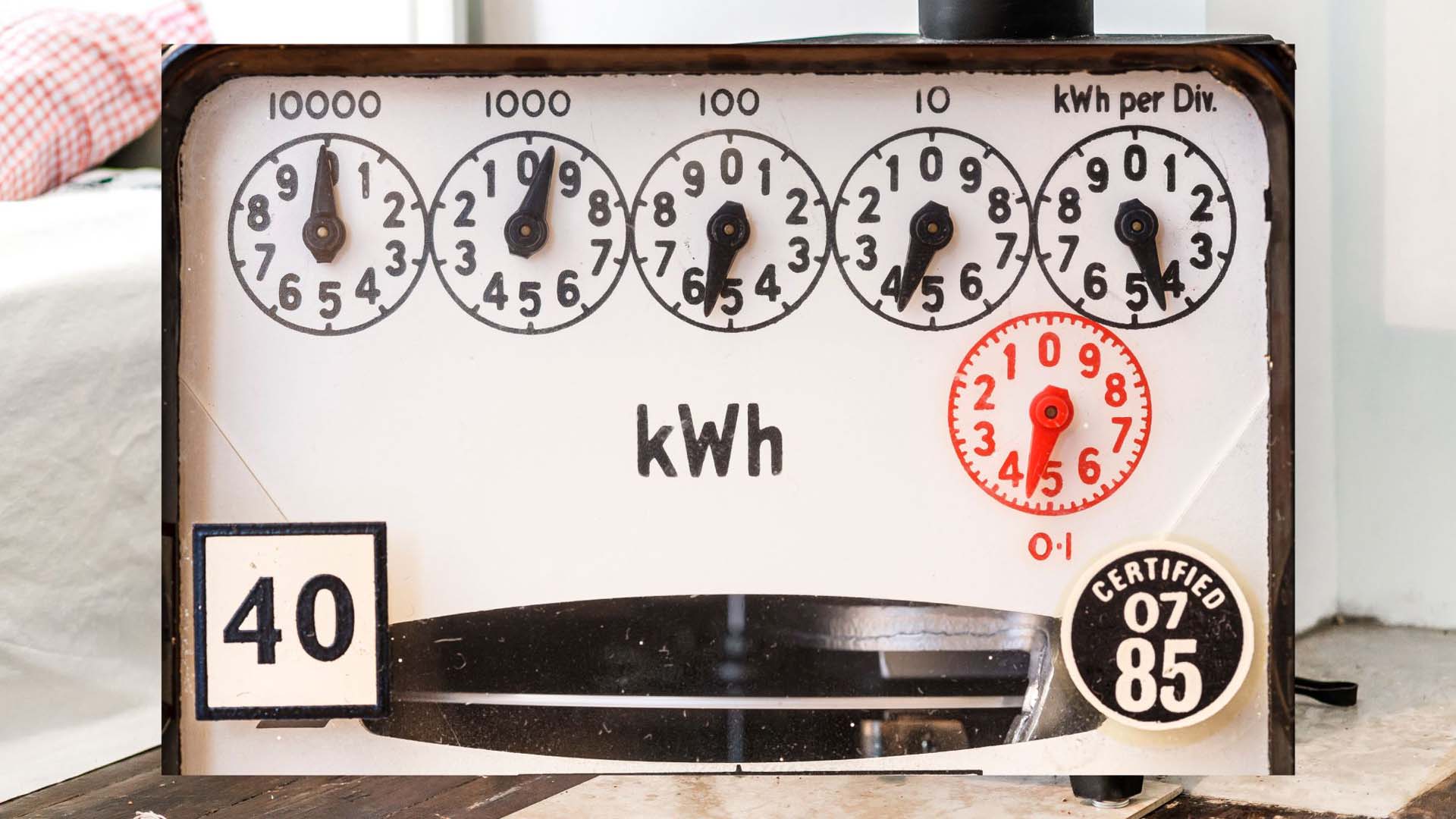Winter energy scams are at record highs – how to keep your money safe and beat the fraudsters
A top consumer champion offers advice on how to tackle the winter fuel payment and warm house allowance scams and stay safe at home and online.

A top consumer champion offers advice on how to tackle the winter fuel payment and warm house allowance scams and stay safe at home and online.

With the temperatures dropping and our energy costs soaring, we’re all watching our pennies. Especially as many of us are still waiting for our winter fuel payment and warm home discount payments which are due around now.
But we also need to be on the lookout for the scammers who are phoning, emailing and texting, hoping to trick you into giving them your bank account details after fooling you into thinking that you are signing up for the allowances.
The problem has become so serious that HMRC has just warned that winter fuel allowance scams have soared by 153% recently, with people losing thousands of pounds to criminals.
To help you stay safe, we spoke to consumer campaigning journalist and TV presenter Dom Littlewood (Fake Britain, Cowboy Builders and Don’t Get Done, Get Dom) to find out what to do if you are contacted by a scammer.
HMRC says the surge in scams targeting winter fuel payments comes ahead of those eligible being paid their money this month.
The Work and Pensions Secretary Pat McFadden said: “If you get a text message about winter fuel payments, it’s a scam. They will be made automatically so you do not need to apply.
“These despicable attempts by criminals to target people are on the rise. We are raising awareness to make it harder for fraudsters to succeed.”
At the same time new research by Smart Energy GB found that nearly three quarters (72%) of British people have been targeted by a scam text, email or phone call this year. And two-thirds of respondents believe that scams are becoming harder to spot.
Dom Littlewood says he isn’t surprised by the latest findings.
“It’s that time of year,” he says. “For example, with the warm home discount, everyone is aware that this payment is due and it’s a great time for scammers to jump on the bandwagon and try to capitalise on this opportunity.
“People know it’s coming, but panic because it hasn’t arrived yet. That’s when these scammers send you a text or email saying to click on a link to claim your discount and instead they empty your bank account.”
If you were born before 22 September 1959 and your income is less than £35,000 you could get between £100 and £300 to help you pay your heating bills for winter 2025 to 2026. If your income is more than £35,000 you will still receive a payment but will pay it back through tax.
This is known as a winter fuel payment and if you’re eligible, you’ll get a letter in October or November saying how much you’ll get. Payments will be made between mid-November and December 2025.
The experts at Saga Money have more information about how the winter fuel payments work.
The warm home discount scheme is a one-off £150 discount off your electricity bill for the winter period. If you’re eligible, your electricity supplier will apply the discount to your bill. If you have a pay-as-you-go smart meter it is applied as a credit to your meter, while if you have an older style pay-as-you go meter you will receive a voucher in the post to use to top up your meter.
You qualify in England and Wales if you get the guarantee credit element of pension credit or certain other means-tested benefits. In Scotland, you’re eligible if you’re on a low income (including if you get pension credit guarantee credit) that meets your supplier’s criteria for the scheme.
In Northern Ireland you may qualify for a different scheme, the affordable warmth scheme.

“In a nutshell, it’s a scam,” says Dom. “If you receive something saying, ‘Click on this link’ or ‘Open this to give us all your bank account details, and we’ll pay you this money,’ that is a scammer who is going to try and empty your bank account.
“And not just that, depending on how deeply they get into your phone or your computer, they can then start harvesting lots of useful information, so not just your bank accounts, but all your passwords, contact details, your photographs, all the things that could help someone create a fake identity.”
Dom says this is his most important tip to avoid being scammed.
“I’ve had this for years, and it’s never done me any harm,” he explains.
“I treat absolutely everything – emails, phone calls, texts – as a scam, and then I start working backwards from it.
“So for example, if it was an email, I would look at the email, and as we know, web pages can be cloned, so hover your mouse over the ‘from’ address and look at what it shows. If it’s not a direct address to the trusted company, delete the message immediately without replying or clicking any links.”
Dom explains that many scam messages say action needs to be taken now and that people may miss out if they don’t click immediately, but he adds, “even though they sound very urgent, stop and take a little breather.”
“There’s no panic,” he says. “That’s the very first warning sign for anybody. ‘You need to claim this now’, or ‘It’s run out’, ‘You won’t get it’, whatever! That’s a warning sign. As soon as you hear that or read it, you can safely assume it’s a scam, because no one ever has to be panicked into anything!”
If you aren’t sure, he recommends asking someone else to look at the email or message.
“Take a little breather and ask your next-door neighbour, partner, son, daughter or friend,” Dom says. “Ask someone else’s opinion to say, ‘Look, what do you think of this?’”
He adds that if there is no one on hand, phone your bank, energy provider or whoever the message is supposed to be from. “But don’t use the number on the email or message as that will be a scam too,” he warns.
Dom warns that if a scammer phones you, they are “extremely professional, extremely convincing and extremely clever”.
“At the very least sign up for the Telephone Preference Service,” he says. “It is totally free but can take up to 28 days to come into effect and it only stops British companies, not the overseas ones.
“You might get the odd rogue one that comes through and you do still have to be careful as some foreign ones fake their numbers to look like they are British. I think registering is the minimum you should do and you can put your mobiles and any land lines on it.”
“I interviewed an older man for my TV series and he admitted he didn’t mind talking to the scammers because he was lonely,” says Dom.
“It really shocked me that he didn’t want me to stop the calls for him even though he knew they were fake, because he was so desperate for someone to talk to.”
Rather than talking to someone who wants to steal your money, there are telephone and face-to-face befriending services across the UK. Contact your local council or try this directory.

If you get a fake call, Dom says it’s worth reporting them to the Information Commissioner’s Office, saying, “It takes two minutes to do this, maximum, and it’s very straightforward.
“The boxes on the online form will ask you what time you were called – that comes up on your mobile; what the number is – copy it from your phone; and then what sort of call it was – if you can’t remember it doesn’t matter, just click ‘other’, and then click submit. And they go into their system.”
If you get what you think is a fake call on your mobile, Dom recommends switching your phone off.
He says: “Some of these scammers are so clever that if you hang up on them, so you can call your bank to check, they stay on the line and you don’t realise it. When you think you are calling your bank, they answer it and pretend to be them.
“So when you ring off, turn off your mobile so it reboots and disconnects them. If it’s a landline, leave it for at least 10 minutes before calling your bank and even then be very cautious.”
Dom says that if you are worried about a scam message, call 159 so you can speak to your bank without having to find the telephone number.
He explains: “159 is a guaranteed number that can’t be cloned, so you’ll never get a call from 159 but if somebody rings you up claiming to be from a bank, then call 159.
“You will get an automated answer asking what bank you want to be connected to. Say your bank’s name and it will put you through. Then you can find out whether the call, message or email you received was genuine.”
Dom says there is an easy way to report texts.
“Look at your phone keypad and if you type the word SPAM on it, its 7726. So whenever you get a text message through on your phone that you know or you think is, is a scam, forward it on to 7726.
“Your provider can investigate the origin of the text and arrange to block or ban the sender, if it’s found to be malicious."
(Hero image credit: Getty Images)
The experts at Saga Money have more advice on the Winter Fuel Payment and on AI scams, gift card scams, romance scams, and how to protect your data and your money.
Phillipa Cherryson is senior digital editor for Saga Magazine. Phillipa has been a journalist for 30 years, writing for national newspapers, magazines and reporting onscreen for ITV. In her spare time she loves the outdoors and is an Ordnance Survey Champion and trainee mountain leader.
View author page

Guard against inconvenient and unexpected boiler failure with Saga Home & Heating Emergency cover and boiler service option.

Your chance to win a 14-day tour around the Rockies and Vancouver for two, worth more than £8,800.
T&C’s apply.

Home chefs are turning to their air fryer and slow cooker to save money on their energy bills. Which is cheaper to run?



Find out if a smart meter offers you more benefits than your traditional energy meter.



As well as being a healthy option, air fryers are said to save money – but in reality, how economical are they?
